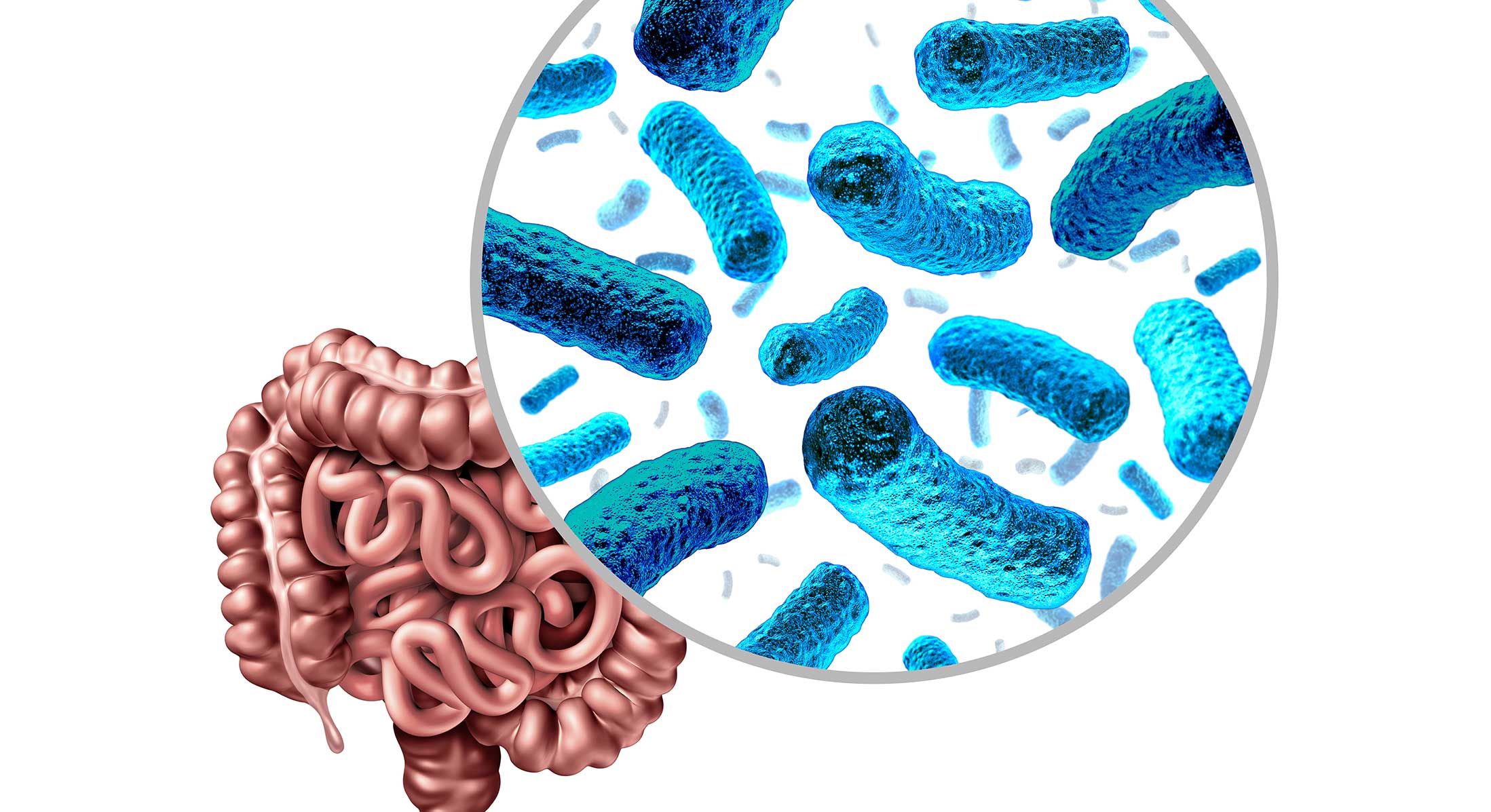The gut microbiome, often termed your body’s “second brain,” plays a crucial role in your overall health, influencing everything from your digestion to your mental health. This complex community of bacteria, viruses, fungi, and other microorganisms resides primarily in your intestines and has a profound impact on the biological processes that dictate your day-to-day well-being. Recent scientific advancements have begun to shed light on just how these microscopic residents affect not only our digestive health but also our immune system, mood, and even the risk of various diseases.
Understanding the gut microbiome’s impact starts with recognizing its vastness and complexity. It is estimated that the human gut microbiome consists of over 100 trillion microbial cells, a number that far surpasses the total number of human cells in the body. These microorganisms are not mere passengers; they perform essential duties that affect metabolism, nutrient absorption, and immune function. The symbiotic relationship between humans and their gut microbiota is a fine balance, one that can affect everything from energy levels to mental clarity.
The significance of this relationship is seen in the variety of factors that can disrupt this balance, such as diet, lifestyle, and antibiotics. Each of these factors can profoundly affect the microbiome’s composition and function. Consequently, understanding the dynamics of the gut microbiome and how to maintain its balance is becoming increasingly important in medical research and for overall health management strategies.
The Role of Diet in Shaping the Microbiome

Diet plays a pivotal role in shaping the gut microbiome, with immediate and long-lasting effects on its composition. Foods high in fiber, such as fruits, vegetables, and whole grains, promote the growth of beneficial bacteria that aid in digestion and enhance immune function. Conversely, a diet high in processed foods and sugars can lead to an increase in harmful bacteria, which can disrupt the delicate balance of the gut microbiome and lead to health issues such as obesity, diabetes, and inflammatory bowel disease (IBD).
The mechanisms through which diet affects the microbiome are multifaceted. For instance, dietary fibers are fermented by gut bacteria into short-chain fatty acids (SCFAs), which are critical for gut health. These SCFAs have anti-inflammatory properties and serve as energy sources for colon cells, potentially reducing the risk of colorectal cancer. Moreover, the diversity of the microbiome can be directly linked to the diversity of the diet—eating a wide range of foods can encourage a more resilient microbial community. From this, it can be concluded how important it is to eat a healthy and varied diet, in addition, you can also use some of the excellent cosmetic products that will improve the appearance of your skin, and if you decide on some of them, you can devote yourself to using those products that are packaged in excellent recycled cosmetic packaging in order to also take care of the environment and nature.
Furthermore, the timing of meals and the regularity of eating patterns also influence the microbiome’s function and overall health. Irregular eating habits can disrupt the circadian rhythms of gut bacteria, which in turn can affect everything from metabolism to mood. Thus, maintaining a balanced diet rich in diverse, fibrous foods not only supports gut health but also maintains the integrity and functionality of the gut microbiome.
The Microbiome’s Influence on Mental Health
The gut microbiome’s influence extends beyond physical health; it also plays a significant role in mental health. The communication pathway between the gut and the brain, known as the gut-brain axis, allows for the transmission of signals that can affect mood and cognitive functions. This connection is why the gut microbiome is sometimes called the “second brain.” Studies have shown that certain gut bacteria produce neurotransmitters like serotonin and dopamine, which are crucial for regulating mood. That way, you will feel happier and ready for new challenges, and you can also devote yourself to work on the things you love, like playing with a collection of exceptional cars with personalized RC bodies, which also makes you happier and full of energy.
The implications of these findings are profound, suggesting that the gut microbiome could be a potential target for treating mental health disorders. For example, research has found correlations between the composition of the gut microbiota and the symptoms of depression and anxiety. Furthermore, probiotics—supplements containing beneficial bacteria—have shown promise in alleviating symptoms of depression by influencing the gut-brain axis. In addition, you should dedicate yourself to tidying up your corner and the space where you spend the most time, and with an excellent remodeling contractor, you can easily and quickly come up with renovation solutions that will make you look more brightly in the future.
This area of research is still developing, but it underscores the potential of microbiome-based therapies in mental health. As we learn more about the gut-brain connection, the possibility of managing mental health through dietary and probiotic interventions becomes more viable. This novel perspective on mental health not only highlights the complexity of the human body but also offers a more holistic approach to health care. The connection of these systems is certainly something that many people do not pay attention to, however, when you discover this correlation, you should devote yourself more to preserving your organism in the right way, for which excellent medical and scientific sites, that are taken care of by responsible WordPress maintenance, can give you certain guidelines about what to do.
Gut Microbiome and Immune Function

The gut microbiome is also a critical player in the body’s immune system. It educates the immune system on distinguishing between harmful invaders and harmless entities, thereby influencing immune responses. A well-balanced gut microbiota promotes an efficient immune response, while imbalances in the microbiome can lead to immune dysfunctions such as allergies, asthma, and autoimmune diseases. This means regular and varied meals, and if you want to make a real change in your life, you can consider the excellent houses in Boca Falls that are very spacious and suitable for living and where you will have a lot of pleasant space to dedicate yourself to cooking for yourself and your loved ones.
The relationship between the gut microbiome and the immune system is intricate. For example, certain gut bacteria are involved in the production of immune-modulating molecules that help regulate inflammation. In conditions like inflammatory bowel disease, an imbalance in these bacteria can lead to an improper immune response, causing chronic inflammation that affects the entire body. The symptoms of such conditions must be identified immediately and should not ignore them, and the Internet provider that manages IT services in San Antonio provides its clients with excellent Internet with which they can quickly and easily research and determine if they have such a problem and if it is time to see a doctor.
Moreover, the gut microbiome also affects the development and function of immune cells in the gut. The presence of diverse and healthy bacteria supports the development of T-cells, a type of white blood cell that plays a central role in immune defense. These T-cells can recognize and react to pathogens more effectively if the microbiome is healthy, thereby enhancing overall immune resilience. All this is important for the overall good functioning of the body, fatigue and pain can also reduce the readiness of our body to defend itself against disease, so you can indulge in the use of excellent recovery wear that will eliminate pain and make you feel more relaxed and happy.
Challenges and Future Directions in Microbiome Research
Despite the significant progress in understanding the gut microbiome, researchers face numerous challenges. One major challenge is determining the causality in the relationship between the microbiome and various health conditions. While many studies show associations, proving that changes in the microbiome directly cause these conditions is complex and requires more sophisticated research methodologies. Research in this sphere brings a lot of significant changes, but also requires large investments and financing of such projects, and if you had a major financial decline due to which you had to take a loan from the bank, you do not have to worry, because you can rely on the excellent possibility of payday loan consolidation with which you will easily pay off your debts.
Another challenge lies in the individual variability of the microbiome. The gut microbiota is highly personalized, and influenced by genetics, diet, environment, and lifestyle, making it difficult to develop universal guidelines for improving gut health. Personalized nutrition, which tailors dietary recommendations to individual microbiome profiles, is a promising approach but requires further research to become practical and accessible. Something that also affects all of this is the environment we are surrounded by, and in order to properly commit to maintaining the ecology, you can count on responsible junk removal in Philadelphia, PA to make sure that your waste is properly disposed of.
Finally, translating microbiome research into effective therapies poses its own set of challenges. The complexity of the microbiome and its interactions with the host mean that simple solutions are unlikely. However, the potential of microbiome-based therapies, particularly in areas like autoimmune diseases, obesity, and mental health, remains significant. As research continues to evolve, the hope is that it will lead to more targeted and effective treatments that can improve the lives of many. In order for all of this to persist in people and individuals, they must dedicate themselves to themselves and their health, and some regular routines of physical activity, such as running on paths that are taken care of by professional asphalt maintenance, can significantly contribute to the overall health of the individual.
Innovative Diagnostic Tools and Therapies
As research into the gut microbiome expands, so too does the development of innovative diagnostic tools and therapies aimed at understanding and manipulating this complex system for better health outcomes. Advances in genomic and bioinformatic technologies have allowed scientists to explore the microbiome at an unprecedented resolution, identifying specific strains of bacteria that contribute to health and disease. These technologies pave the way for the development of novel diagnostics that can detect imbalances in the microbiome that may be indicative of illness or increased risk of certain diseases. Some significant steps like these indicate the rapid and reliable development of medicine and its goals, and to learn more about these new achievements and discoveries, you can visit some of the scientific seminars that talk about exactly this, and while traveling to these events, you can keep your jewelry in compact and travel-friendly ring case so you don’t lose it.
One promising area of development is in the field of microbiome-based diagnostics that use the presence or absence of certain microbes as biomarkers for specific conditions. For example, certain patterns of bacteria have been associated with colorectal cancer, suggesting that changes in these patterns could serve as early warning signs of disease development. Similarly, microbial signatures are being studied in diseases like diabetes and obesity, with the aim of developing personalized interventions based on an individual’s microbiome profile. This unique approach to the patient will certainly mean a lot in the future if investments in this kind of research continue, and if you want to leave a mark in your community that will also mean something to everyone, you can hire excellent church architects who will make plans for the cathedral to your wish.
Therapeutically, there are exciting developments in the use of prebiotics, probiotics, and synbiotics to modulate the microbiome. Prebiotics, which are fibers that feed beneficial bacteria, and probiotics, which are live beneficial bacteria, are being designed to target specific functions of the microbiome, such as enhancing barrier function or reducing inflammation. Synbiotics, which combine prebiotics and probiotics, are tailored to maximize the survival and efficacy of the bacterial strains they contain, providing a coordinated approach to microbiome health. The production of such supplements has increased a lot in recent years, and excellent promotion and projects from product design studio have brought high demand, especially since these supplements significantly improve the work of the intestinal system.
Microbiome and Aging

The relationship between the gut microbiome and aging is another frontier of exploration. Research indicates that as we age, the diversity of our gut microbiome tends to decrease, which can contribute to a range of age-related health issues, including decreased immunity and chronic inflammation. Understanding how the microbiome changes with age could lead to interventions that promote longevity and reduce the risk of age-associated diseases. In order to still gain this important knowledge and work on taking care of your health, you can start with some of the useful and popular online courses that will help you develop your areas of interest successfully.
Several studies have suggested that modifying the gut microbiome through diet, probiotics, and even fecal microbiota transplants could promote healthier aging. These interventions could potentially enhance gut barrier function, reduce inflammation, and support immune health, all of which are crucial for maintaining health in older adults. Additionally, there is growing evidence that a healthy gut microbiome can impact the aging brain, potentially reducing the risk of neurodegenerative diseases such as Alzheimer’s disease and other forms of dementia. In order to take care of the health of your brain, you should take care of constant daily stimuli for your mind, as well as not to go out in the sun on too hot days, or if you have to, you can get very cheap extremely comfortable hats in the wholesale hats that will protect your head from direct sunlight.
Conclusion
The exploration of the gut microbiome is a dynamic field that promises to revolutionize our understanding of health and disease. As the mysteries of this “second brain” continue to unravel, the potential to harness its power for better health outcomes becomes increasingly tangible. From influencing our mental health to shaping our immune responses, the gut microbiome is integral to our well-being. Ensuring its balance and health through diet, lifestyle choices, and possibly medical interventions will likely be at the forefront of personalized medicine in the years to come. Just as diverse diets can influence the gut microbiome, innovative food products like ice cream cone edibles could also play a role in shaping its composition and function.
As we stand on the brink of these advancements, the importance of continued research and innovation in this area cannot be overstated. In addition, we are also fighting for the development of medicine, but also the preservation of our environment, which we can especially protect if we start using renewable energy sources and installing useful solar panels on the roofs, which can be helped by an experienced electrician in Plano, TX, in which case you will and save energy and leave a positive ecological footprint on the environment.
